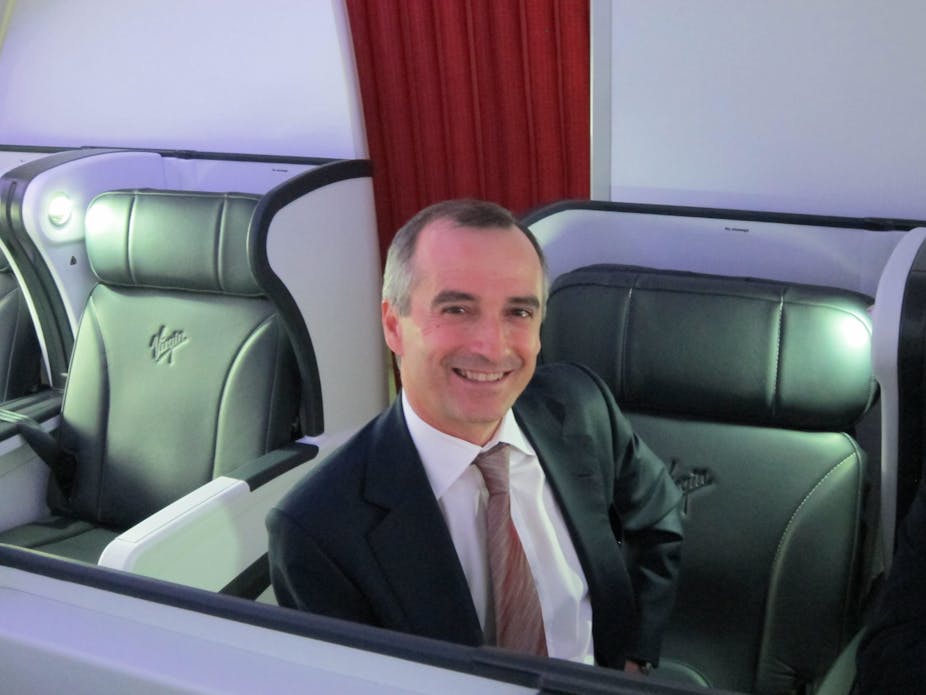Virgin Australia’s full-year profit of $22.8 million masks the ongoing challenges facing the airline as it chases a bigger share of the corporate market, says University of Sydney business school Professor Tony Webber.
Virgin has significantly ramped up its capacity to carry more customers - but this could lead to more discounted fares in the future, according to Professor Webber.
“It’s going to get messy. There will be tonnes of cheap airfares, no doubt about it,” Professor Webber said.
Virgin Australia chief John Borghetti today pointed to the airline’s success at attracting higher yielding corporate and government customers as a key driver of the airline’s improved profitability.
But Professor Webber, formerly Qantas’ chief economist, said today’s profit figure was significantly down from the airline’s first half-profit of $52 million.
“To go from that to making a profit of $22 .8 million for the full year suggests something went astray in the second half… it’s to do with the massive capacity they added to the market.”
Virgin Australia also benefited from the decision by Qantas to shut down the airline in November last year, Professor Webber said. But he added the ongoing capacity war is likely to be hurting corporate yields.
“Adding capacity won’t stimulate corporate (travellers) to travel on your planes. Corporates travel because they need to. The economy drives it, not capacity or airfares.”
Virgin Australia said it achieved its target of 20% of domestic revenue from the corporate and government market, one year ahead of schedule.
“Reaching the 20% target is a tipping point which we believe effectively creates a new competitive norm,” Mr Borghetti said.
But Professor Webber said nobody knows the size of the total corporate market, with data difficult to come by.
“It could be because he’s allocating more capacity to the corporate-intensive routes – the golden triangle of Sydney, Brisbane and Melbourne, or it could be because he’s allocating more capacity to regionals, with a lot of fly in fly out traffic.
"I think the next 12 months will tell us what’s really going to happen with Virgin.”
Ian Douglas, senior lecturer in aviation at University of New South Wales, said Virgin’s claim to have exceeded its target on corporate customers when put alongside a profit result that was lower than the market expected puts the airline in a “slightly awkward place”.
Despite this, he said the airline has done all the right things in repositioning the product, brand and the staff for the corporate market.
“I don’t doubt that John Borghetti has made inroads into the corporate markets, but the market is fairly robust given the mining sector and finance industries.”

